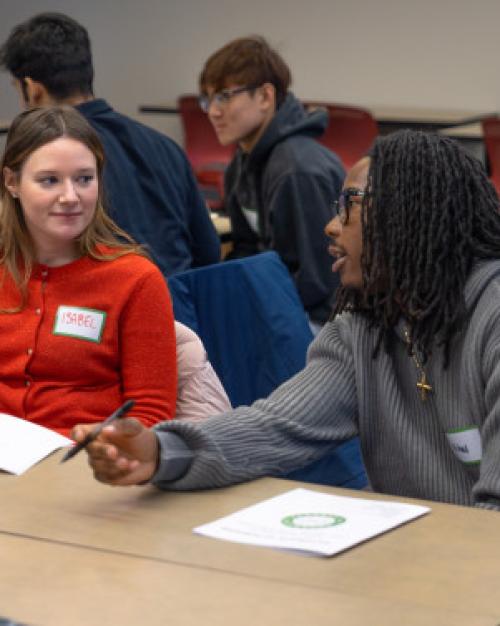The field of game studies is growing at Cornell, including an expanded set of classes, workshops and symposia and a growing library collection of games, thanks in part to a group of faculty members who spent the last two years working on these initiatives.
The Interactive Media and Games group is part of the provost’s CIVIC (Critical Inquiry into Values, Imagination and Culture) initiative, a task force focused on radical collaboration in the arts and humanities.
“More people play games now than ever before and it’s not just young people,” said Andrew Campana, assistant professor in Asian studies in the College of Arts & Sciences (A&S). “The academic study of games has really taken off in the last decade.”
While courses on game design have existed for years in computer science departments, the field of game studies views games from a humanistic and analytical perspective, considering questions such as:
- How have games emerged as an alternative medium for storytelling?
- Why is Japan the birthplace of so many successful gaming companies?
- How well do games tackle issues of identify in terms of race, gender and disability?
- Can game-playing be a vehicle for exclusion or discrimination, or have companies made efforts to make games accessible and inclusive to all players?
- What can people learn from games and does screen time spent gaming contribute to isolation or create community?
- How should we think about digital art created for games and music composed especially for these worlds?
Maria Fernandez, associate professor of history of art and visual studies (A&S), includes video games from the 1960s to today in her discussion of digital media history.
“The field of game studies has progressed from its previous focus on rules and narratives to now include cultural issues and a more global perspective,” Fernandez said.
Along with establishing new courses with major sections on game studies, the working group also collaborated with several faculty across A&S who teach game-related courses. For example, Erik Born, assistant professor in German studies(A&S), added a unit on games to a class on science fiction and taught another class on medieval films and games; Julia Chang, associate professor in romance studies (A&S), created an interactive game inspired by her experiences of doing research in archives in Spain; and James Spinazzola, the Barbara & Richard T. Silver ‘50, MD ‘53 Associate Professor and director of winds in the music department (A&S), uses a gaming platform to help students learn conducting.
Thanks to a grant from the Center for Teaching Innovation, facultly members across departments — including the working group fellows — collaborated with Reanna Esmail at the Cornell University Library to create the Game Studies Collection, which includes video games, controllers, board games, role-playing games (RPGs) and game-related materials relevant to courses and faculty research. The collection also includes materials for general game-play and student interest. The faculty group is also finalizing a teaching module with a game-related assignment that could be incorporated into many courses on campus, both graduate and undergraduate.
“Games are such multi-disciplinary sites, so they offer the opportunity for interdisciplinary work and the sharing of perspectives,” said Roger Moseley, associate professor of music (A&S). “Plus, what the students bring to this with their real knowledge and passion for games makes this so much fun. That provides a great platform to investigate critical issues.”
Over the past two years, the faculty group has also brought academics, artists and the director of Rochester’s Strong Museum of Play to campus for discussions. They’re also exploring a new minor in game studies for the future and they’ve hired a post-doctoral fellow, KT Wong, who will continue to teach courses related to video games and work on these initiatives for the coming year.
“The field is only growing and Cornell is rapidly becoming central to these conversations,” Campana said. “What is forming at Cornell plays to Cornell’s strengths of interdisciplinarity and of tighter connections than usual between STEM, the humanities and the social sciences.”




